Coverage: UN Women Regional Director for Europe and Central Asia and UN Women Programme Division Director in Bosnia and Herzegovina
Date:
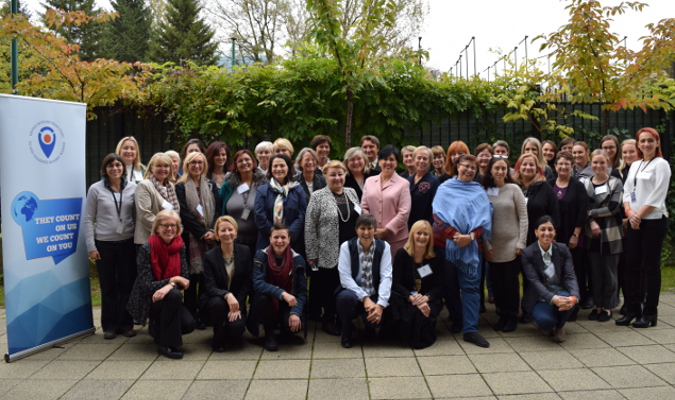
UN Women Regional Director for Europe and Central Asia and Representative to Turkey Ingibjorg Gisladottir and UN Women Programme Division Director Maria Noel Vaeza visited Bosnia and Herzegovina (BiH) from 11-13 October to join a UN Trust Fund on Ending Violence against Women Knowledge Exchange event in Sarajevo. They met with representatives from the BiH government, civil society organizations and partners to discuss issues such as aligning BiH’s gender agenda with the Sustainable Development Goals (SDGs), and visited and received feedback from UN Women beneficiaries.
11 October
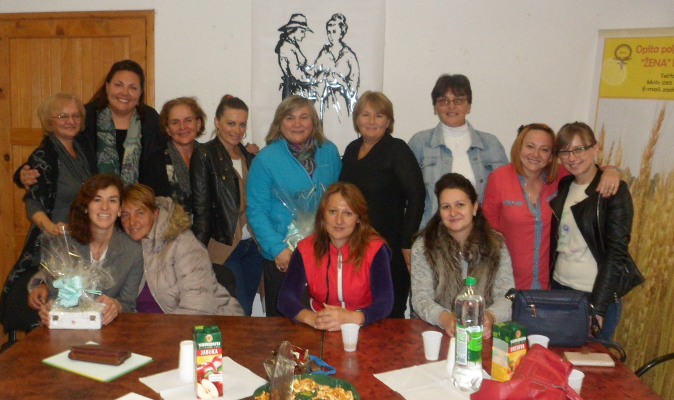
Ms. Vaeza spent her first day in Bosnia and Herzegovina on a visit to Bratunac and Srebrenica, two Eastern Bosnia municipalities severely affected by war atrocities, where she met with UN Women implementing partners and beneficiaries.
In Bratunac, Ms. Vaeza was introduced to the innovative UN Women-UNDP initiative, Seeking Care, Support and Justice for Conflict Related Sexual Violence Survivors in BiH, which supports survivors’ economic empowerment and provides judicial and psycho social support. Ms. Vaeza met with implementing partners Maja Kravica and Priroda Bratunac, the Mayor of Bratunac, a major supporter of the initiative, and with direct initiative beneficiaries, who discussed the scheme’s impact on them and their families. Ms. Vaeza was thrilled to see how the initiative empowered women by developing their entrepreneurial skills and to hear of their hopes for the future. She highlighted the need to combine psychosocial support with economic empowerment to reduce stigma.
In Srebrenica, Ms Vaeza visited the Memorial Center in Potocari and heard from a survivor about what happened there during the 1992-1995 war.
12 October
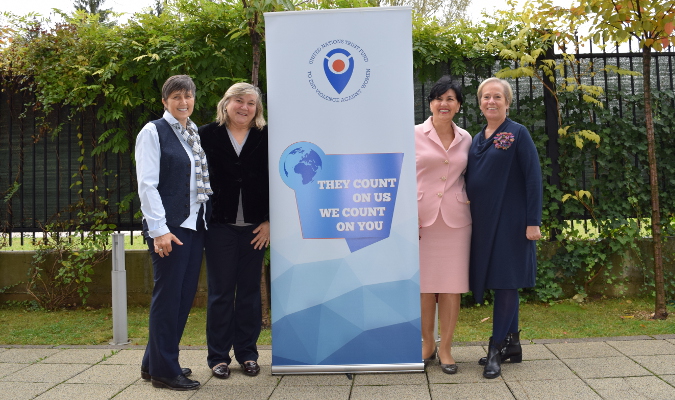
In their first day together in Bosnia and Herzegovina, Ms. Ingibjorg Gisladottir, UN Women Regional Director for Europe and Central Asia and Representative to Turkey, and UN Women Programme Division Director Ms. Maria Noel Vaeza participated in a UN Trust Fund on Ending Violence against Women Knowledge Exchange event on multi-sectoral approaches to deliver services to women survivors of violence in Europe and Central Asia.
They met with Ms. Semiha Borovac, Minister of Human Rights and Refugees, and Mr. Sasa Leskovac, Advisor in the Agency for Gender Equality, to discuss how the BiH government approaches the implementation of SDG goal 5 and related gender goals. They explored UN Women support to set up and implement the Financing Instrument for Implementation of the Gender Action Plan (FIGAP) and develop the third national Gender Action Plan (due in late 2017).
13 October
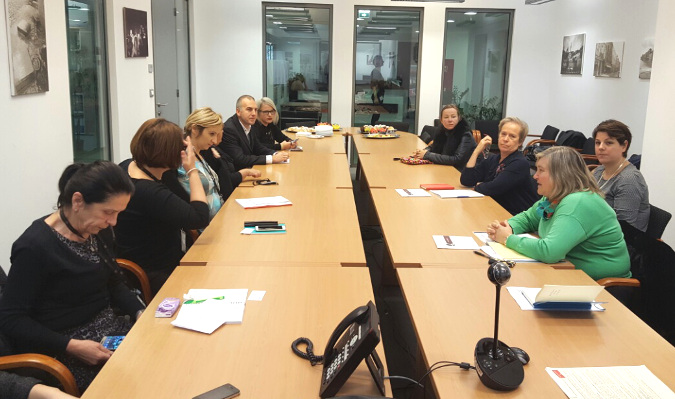
On their second day together, UN Women Regional Director for Europe and Central Asia and Representative to Turkey Ms. Ingibjorg Gisladottir and UN Women Programme Division Director Ms. Maria Noel Vaeza met with representatives of various civil society organizations (CSOs) to discuss UN Women’s CSO collaboration vision.
Since the mid-90s, many CSOs working in gender equality and women’s empowerment have been established in Bosnia and Herzegovina. Due to a lack of adequate state services, several CSOs provide services to survivors of domestic and conflict-related sexual violence. Using a competitive process, UN Women provides funding to CSOs working to end violence against women.
Noting that run all nine Safe Houses and all specialized services for gender-based violence survivors in BiH, Ms. Vaeza commended the CSOs’ active role in providing services to BiH’s most marginalized women.
Later, Ms. Gisladottir and Ms. Vaeza met with Ambassador Lars-Gunnar Wigemark, Head of the EU Delegation and Special Representative to Bosnia and Herzegovina.
On 21 September 2016, the EU accepted BiH’s application for consideration as an EU member state candidate, tasking the European Commission to initiate the process to determine whether BiH fulfils candidate conditions. The EC will deliver a questionnaire to BiH to assess the country’s economy, the state of its democracy, its adherence to the rule of law and human rights standards, and its ability to respect and meet the obligations of EU membership.
Meeting participants discussed how to explore ways the UN Women and EU could work together to set up a Gender Equality Facility based on models successfully developed in Albania and Serbia.
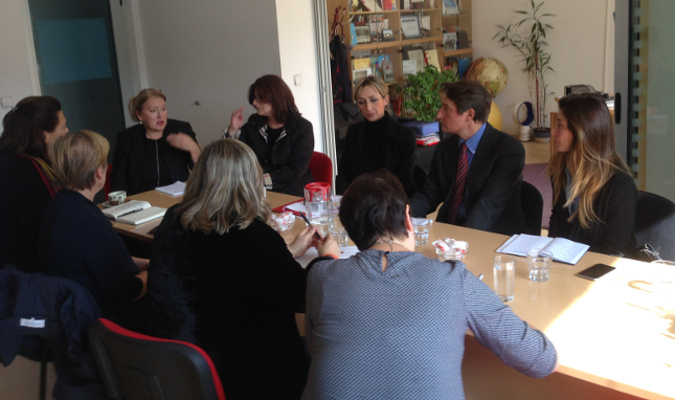
Later that day, Ms. Gisladottir and Ms. Vaeza visited the Agency for Gender Equality, the government body that monitors gender equality in BiH. The Agency for Gender Equality also initiates and coordinates development of BiH’s Gender Action Plan, provides opinion on compliance of draft laws with the national law and international standards on gender equality, and considers citizen complaints of Gender Equality Law violations.
Ms. Gisladottir and Ms. Vaeza met with representatives from the Agency and two gender centres to discuss cooperation with UN Women and support needed for the upcoming development of the third national Gender Action Plan and the BiH’s EU candidacy process.